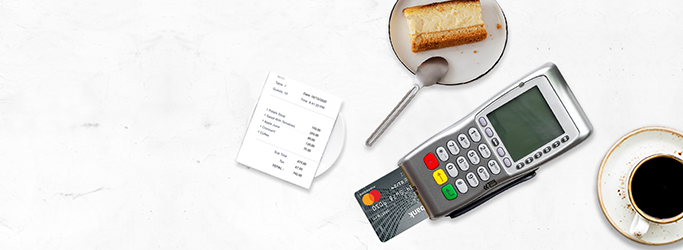Borrowing & Credit | Money Basics
Things you didn’t know about credit cards and are afraid to ask

Using a credit card is a good way to manage payments. But other than buying things, how else can a credit card work for you? You can:
- Use it to make deferred payments
- Use it to earn perks and rewards
- Use it to build your credit history
A credit card is a financial tool that allows you to make purchases through an assigned credit line granted by a financial institution–aka the credit card issuer. When you use your credit line, you have to pay it back. With credit cards, you pay for your purchases at the end of a billing cycle, which is summarized in a Statement of Account that lists all card purchases and transactions within that period.
What you can do with a credit card
Used responsibly, a credit card is a useful tool in your financial life. Here are the things they can help you with.
-
Defer payments- Instead of cash or debiting money directly from your bank account, you can defer your payments using a credit card. Some credit cards also offer soft payments through installment schemes, such as Balance Conversion, Balance Transfer, and the most popular 0% Installment.
-
Earn perks- Credit cards come with perks. These perks range from points that can be exchanged for rewards, airline miles, cashback, gift certificates, gift items, access to VIP lounges, among others.
-
Build your “credit history”- Using a credit card responsibly is a way to establish creditworthiness. It tells financial institutions that you pay what you owe which makes them more willing to let you take out loans in the future, based on your credit history.
What a credit card cannot let you do
Credit cards are often misunderstood. Here are things you should not do with credit cards.
-
Use it to spend beyond your means- A credit card extends your financial capacity through an assigned credit limit, but it does not mean that you should use it to spend unnecessarily. Mismanaging your credit card purchases leads to bad debt, which take the form of finance charges on top of your purchases.
-
It spares you from fraud- Credit cards are magnets for criminals, so it’s important that you secure your credit card information. Should you find yourself a victim of credit card fraud, you can contest any unauthorized transactions on your credit card statement. One of the most common targets of fraudsters is the OTP (one-time password) sent via SMS. They resort to tricks which are designed to get you to disclose to them your OTP. You should never give your OTP to any person for purchases or transactions that you did not make personally.
-
Use it to buy just anything- Every credit card has a credit limit, or the maximum amount you can have as your outstanding balance. If you go above your credit limit, the bank that issued your credit card will reject the payment.
Money tip: Don’t pay just the minimum!
On the due date, you don’t have to pay off your entire balance. You can just pay the minimum. However, remember that interest or finance charges is the cost of using money on credit. With credit cards, you’re spending money on credit that comes with interest. Some credit cards charge around 3.5% per month.
Paying only the minimum means the remainder of your balance will grow through interest. If you fail to pay the minimum, it gets worse. Besides interest, you also get slapped with a late payment fee. Miss more payments and your credit card account will be closed. This will hurt your credit history and make it hard for you to apply for another credit card or a loan.
Paying the entire amount you’re billed is ideal. If that’s not feasible, try to pay what you can to reduce your balance and keep the size of your debt at bay. At the end of the day, your goal is to ensure your credit line is clear and you manage to pay off your credit card in full when it is due.
To know more of the Metrobank Credit Credit, visit https://www.metrobankcard.com/
This article is part of a collection of stories and practical financial tips that are published with the goal to help people learn from the experiences of others, and to pick out lessons on personal finance and sound money habits beyond the pandemic.
More Smart Reads